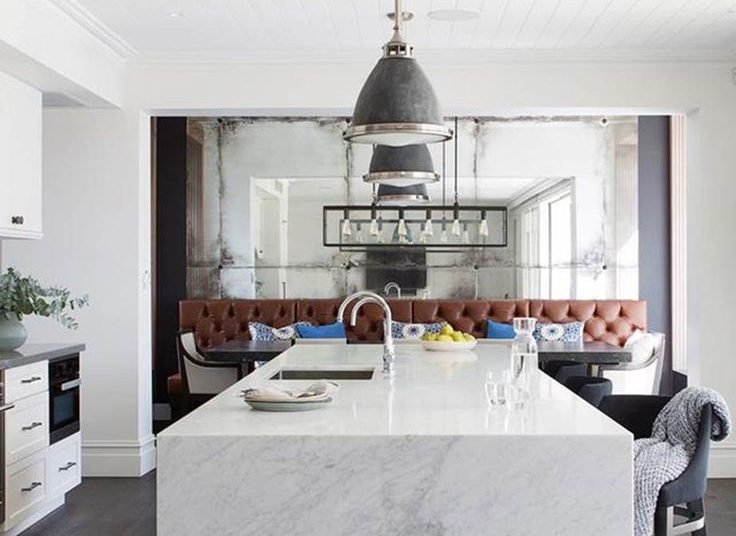Undertaking a kitchen renovation in Sydney is a significant home improvement project that can dramatically enhance your home’s functionality and value. However, one of the most common questions homeowners have is, “How much will it cost?” Understanding the various components that make up the total expense and implementing smart planning strategies are crucial for a successful and financially manageable renovation.
Key Cost Components of a Sydney Kitchen Renovation
The overall cost of a kitchen renovation is a sum of many parts. Here’s a breakdown of the primary elements you’ll need to budget for:
- Cabinetry (25-40%): This is often the largest expense.
- Pre-fabricated/Modular: More budget-friendly, offering standard sizes and finishes.
- Semi-custom: Combines standard sizes with some customisation options.
- Custom: Tailored to your exact specifications, maximising space and offering unique designs, but at a higher price point.
- Benchtops (10-20%): Material choice heavily influences cost.
- Laminate: Most affordable, wide range of colours.
- Engineered Stone (e.g., Caesarstone): Popular, durable, and mid-range.
- Natural Stone (Granite, Marble): Premium, durable, and unique, but more expensive.
- Timber/Stainless Steel: Niche options with varying costs.
- Appliances (10-20%): From basic models to high-end integrated units.
- Oven, cooktop, rangehood, dishwasher, microwave, refrigerator.
- Consider energy efficiency ratings for long-term savings.
- Splashbacks (3-5%): Protect walls and add aesthetic appeal.
- Tiles (ceramic, porcelain, subway): Vary widely in price.
- Glass: Modern, easy to clean.
- Stone: Matches benchtops for a seamless look.
- Flooring (5-10%): If replacing or extending.
- Tiles, timber, laminate, vinyl. Costs depend on material and installation complexity.
- Plumbing & Electrical (10-15%): Essential for functionality and safety.
- Relocating sinks, dishwashers, fridges, adding new power points, lighting, and upgrading wiring.
- Always use licensed professionals for these trades.
- Demolition & Waste Removal (3-5%): Tearing out the old kitchen and disposing of debris.
- Labour & Installation (15-25%): The cost of skilled tradespeople (carpenters, plumbers, electricians, tilers) to install all components.
- Design Fees (Optional, 5-10%): If you hire a professional kitchen designer.
Factors Influencing Your Kitchen Renovation Cost
Several variables can significantly impact the final price tag of your kitchen renovation sydney:
- Kitchen Size: Larger kitchens naturally require more materials and labour.
- Extent of Renovation: A cosmetic update (new doors, benchtops) will be far less expensive than a complete gut and reconfigure.
- Material Quality: Premium materials for cabinetry, benchtops, and appliances will drive up costs.
- Layout Changes: Moving walls, plumbing, or electrical points adds complexity and expense.
- Structural Work: If your renovation requires structural modifications (e.g., removing a load-bearing wall), expect significant additional costs and engineering fees.
- Access: Difficult access to your property can increase labour time and delivery costs.
Planning Tips for Budget Management
Effective planning is your best tool for keeping your kitchen renovation on track and within budget.
- Set a Realistic Budget (and Contingency): Research average costs for similar projects in Sydney. Always add a 10-20% contingency fund for unexpected issues or desired upgrades.
- Prioritise Needs vs. Wants: Distinguish between essential functional improvements and desirable aesthetic enhancements. Allocate your budget accordingly.
- Get Multiple Detailed Quotes: Obtain at least three itemised quotes from reputable Sydney kitchen renovation companies. Compare them carefully, ensuring they cover the same scope of work.
- Consider a Phased Approach: If budget is tight, consider renovating in stages. For example, replace cabinets and benchtops first, then upgrade appliances later.
- Research Material Costs: Familiarise yourself with the price ranges of different materials. This empowers you to make informed choices that align with your budget.
- Stick to the Plan: Avoid making changes once the renovation has started. Variations can lead to significant delays and cost overruns.
- DIY Where Possible (Carefully): If you have the skills, doing minor tasks like painting or demolition yourself can save labour costs, but be realistic about your abilities.
- Re-use Existing Elements: If your current layout is functional, consider keeping existing plumbing or electrical points to reduce costs. Sometimes, simply refacing cabinets can offer a fresh look without a full replacement.
Conclusion
A kitchen renovation in Sydney is a substantial undertaking, but with meticulous planning and a clear understanding of the costs involved, you can achieve a stunning and functional space without financial surprises. By breaking down expenses and following smart budgeting tips, you’ll be well-equipped to navigate the process smoothly and enjoy your beautiful new kitchen for years to come.








